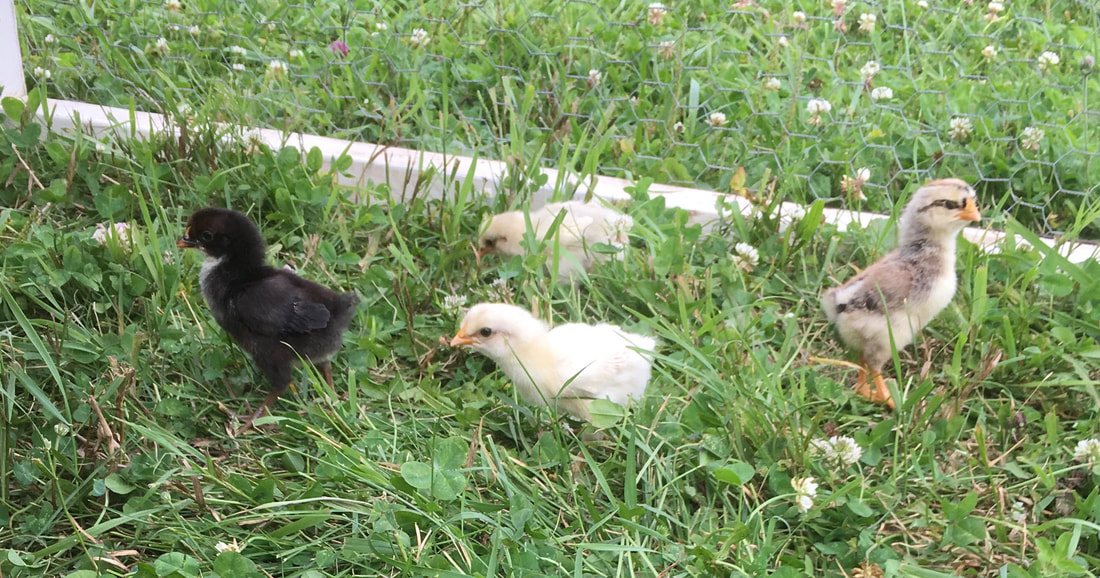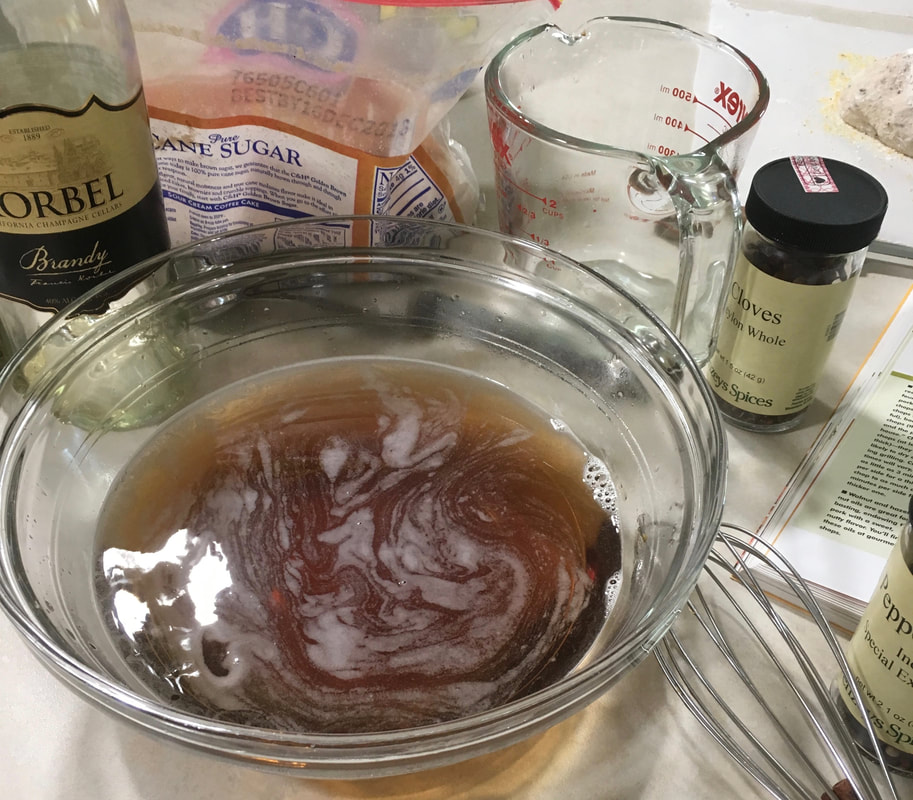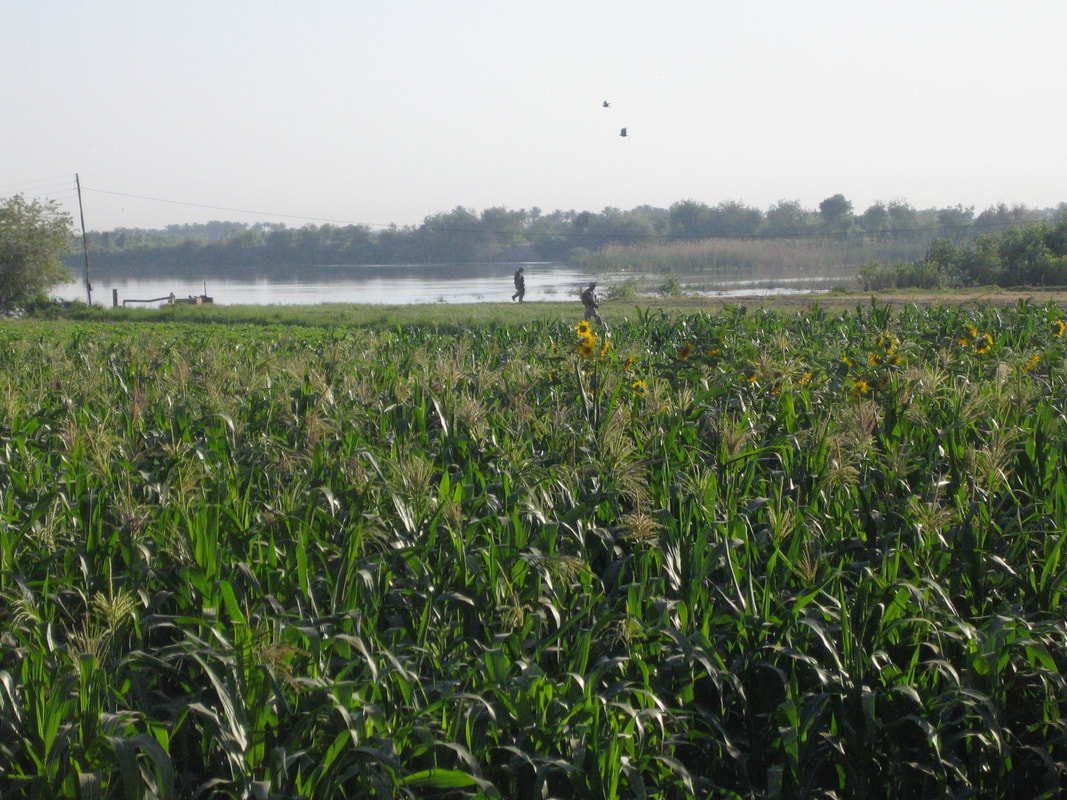|
“What are you up to?” a friend asked over the phone on Sunday.
“I’m checking out Viking chicks.” “O k a a a y— Uh… is that website or something?” “No. Well, it probably is. But I’m talking about chickens. Our broody hen just hatched five Icelandic chicks.” When a hen gets broody—the instinct to sit on eggs and hatch them—we try to break the habit since broody hens don’t lay eggs. If you don’t break the broodiness in the first couple days it can last a couple weeks. When one of our Buff Orpington hens got broody, we couldn’t break her. We’d pull her from the nest box several times a day, pull the other eggs out of the box, and even put frozen water bottles under her. Nothing worked. Failing to redirect her nature, we got the chance to work with it. Friends of ours who keep flock of Icelandic chickens—a resilient, dual-purpose breed brought to Iceland by the Norse over a thousand years ago—gave us six fertilized eggs. We put the eggs under the hen we started calling Broody and waited. Three weeks later, the day I started building a nest box in the chicken tractor, the chicks started hatching. I'd never been close to a hen with chicks. We wondered if the hen would even be a good mother since she was raised in a brooder and the chicks weren’t from her eggs or even her breed. Three chicks had already hatched when I transferred her from the barn to the much safer chicken tractor. When I carried her nest box to the chicken tractor and picked her up, there were only three eggs beneath her and no chicks. Shit. Did they get out of the nest already? Did the barn cats get to them? As I lowered Broody into the chicken tractor nest box and glanced around for smug cats, three chicks dropped from beneath Broody’s feathers -peep, peep, peep. Talk about tucking them in. By evening, five of the six eggs hatched (the sixth turned out to be unfertilized). Within twenty-four hours, they were following Broody around the tractor, pecking, scratching and peeping along with her. I’m liking my Viking chicks.
0 Comments
Wisconsin supposedly drinks more Brandy per capita than any other state. Californians drink more total, but they have seven times more people. And it's not just Brandy, it's Korbel. As of 2004, one-third of Korbel's total production went to the Badger Stage.
I didn't get the brandy thing until we started frequenting Friday night fish fry at local supper clubs and taverns. Bartenders were slinging together brandy old fashioneds by the tray full. I always thought of it as an old-guy's drink, something for people who've been going to the same supper club since the Johnson administration. Then I tried one at Quimby's Grove on the south side of Madison. I like my gin & tonics. I like my Manhattans. But at a fish fry or up north, I now drink old fashioneds. Yesterday, I decided to make bourbon-brined pork chops. Kneeling in front of the liquor cabinet, I considered my options and tried to decide what would have the best flavor. Then I spotted an almost-empty bottle of Korbel left over from a party (I don't make old fashioneds for myself at home). I poured a shot to sample the flavor and imagine it in a marinade. Brandy-Brined Pork Chops: See the recipe for Bourbon-Brined Pork Chops. I substituted Korbel for bourbon. I also used only one cup of cold water since the chops (which I hand sawed out of a frozen loin roast because we're out of chops) didn't have a lot of room to spare in the pyrex container I used. I seared them at 500 degrees on the grill and then turned it down to medium low (these were 1-inch chops) and cooked them until the meat thermometer read 140 degrees. Wow. Try a brandy-brined pork chop and you may just skip the supper club and eat at home. *Arabic: "Thank You" Yesterday, while driving down to Albany to have our chickens processed, I spotted an Amish woman leading a dairy cow and thought of Iraq. I spent most of my second tour in Iraq in rural areas between Fallujah and Ramadi. We lived in the villages, patrolled among the people every day, and glimpsed an entirely different world when we didn't have to look at it through gun sights. We treated Iraqis with respect and dignity, knowing that the majority weren't the enemy, but that the enemy hid among them. In the counter-intuitive calculus of counterinsurgency, we brought about security by making ourselves vulnerable, by getting close to people, by interacting. I would never call myself a poet, but a few years ago at a poetry slam during the MOSES Organic Farming Conference, this memory hit me all at once and I scratched out the poem just in time to read it on stage. The poem describes that same memory from Iraq that hit me again yesterday. Shukran
We patrolled through pink-petaled orchards Swept for IEDs in alfalfa fields When Marines and gun trucks escaped my view War and Time evaporated. A hedgerow fringed the Euphrates Its tangled fingers sweeping the ocean sky Like the hedgerow on our farm’s bottom pasture Across the wide, muddy creek. Squad position reports through my earpiece Crackled me to the present Following my order To not disturb livestock or gardens The squad skirted wide around a grazing dairy cow Tied to a stake in the field. The bony cow still spooked, tore at the rope, Tangled her hooves and horns And thrashed on the ground Her once-gentle brown eyes drawn wide with fright. I slung my rifle behind my shoulder and approached her side. “Easy girl, easy” Bracing her front legs with my knees, I rubbed her shoulder. “Easy girl, easy.” And untangled the rope, Her flesh twitching under my hands. A burka-clad young woman kneeled at the cow’s head. Her delicate hand brushed mine across the animal’s leg. She breathed a startled whisper through her veil, Her once-gentle brown eyes drawn wide with fright. “Shukran” At the end of an organic field day today, farmers drifted into various groups and conversations as usual. The conversation circle I joined included several Amish farmers. I was showing some other farmers how I could plant and seed with the BCS. When the Amish men leaned in to look at the phone pics around as well, they all started shaking their heads and laughing. I heard one of them say, "crazy".
"Well, you're not afraid of hard work," one of the older men said in a respectful compliment. We all had a good laugh, but when the Amish start to make fun of your technology, it might be time to re-evaluate. |
Ryan Erisman
Former Marine Infantry Officer. Iraq Vet. Interested in Regenerative Agriculture at any scale. Archives
February 2023
Categories |
Odyssey Farm, LLC.
The Odyssey Farm Journal
Odyssey Farm, LLC
|
Dane County Climate Champion
|
608.616.9786
|
Copyright © 2016




 RSS Feed
RSS Feed